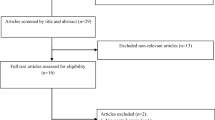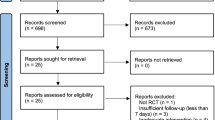Abstract
Background & objective(s)
The current evidence base regarding the impact of propolis consumption on lipid profile in humans is equivocal. Thus, we sought to investigate the impact of propolis consumption on anthropometric indices and lipid profile in this meta-analysis.
Methods
Cochrane Library, Scopus, PubMed, and Web of Science electronic databases were searched up to December 2019. A random-effects model used to pool effect size. The leave-one-out method used to conduct sensitivity analysis.
Results
Five RCTs were included in this study. Our findings indicated a significant decrease in triglyceride (TG) (WMD: −3.91 mg/dl, 95% CI: −4.22, −3.60), and a significant increase in high-density lipoprotein (HDL) (WMD: 3.41 mg/dl, 95% CI: 0.05, 6.76), however, for body mass index, weight, cholesterol (CL), and low-density lipoprotein (LDL), no significant alterations were evident.
Conclusion
This study revealed that consumption of propolis is associated with a reduction in TG levels, in addition to an increase in HDL levels. Nevertheless, additional research is required to further delineate the relationship between propolis consumption and lipid profile.





Similar content being viewed by others
References
Toreti VC, Sato HH, Pastore GM, Park YK. Recent progress of propolis for its biological and chemical compositions and its botanical origin. Evid Based Complement Alternat Med. 2013;2013:697390.
Sforcin JM. Biological properties and therapeutic applications of propolis. Phytother Res. 2016;30(6):894–905.
Banskota AH, Tezuka Y, Kadota S. Recent progress in pharmacological research of propolis. Phytother Res. 2001;15(7):561–71.
Silva BB, Rosalen PL, Cury JA, Ikegaki M, Souza VC, Esteves A, Alencar SM. Chemical composition and botanical origin of red propolis, a new type of brazilian propolis. Evid Based Complement Alternat Med. 2008;5(3):313–6.
Machado CS, Mokochinski JB, de Lira TO, de Oliveira Fde C, Cardoso MV, Ferreira RG, et al. Comparative study of chemical composition and biological activity of yellow, green, brown, and red Brazilian propolis. Evid Based Complement Altern Med. 2016;2016:6057650.
Kuropatnicki AK, Szliszka E, Krol W. Historical aspects of propolis research in modern times. Evid Based Complement Alternat Med. 2013;2013:964149.
Szliszka E, Kucharska AZ, Sokol-Letowska A, Mertas A, Czuba ZP, Krol W. Chemical composition and anti-inflammatory effect of ethanolic extract of Brazilian green propolis on activated J774A.1 macrophages. Evid Based Complement Alternat Med. 2013;2013:976415.
de Groot AC. Propolis: a review of properties, applications, chemical composition, contact allergy, and other adverse effects. Dermatitis. 2013;24(6):263–82.
Lopes AA, Ferreira TS, Nesi RT, Lanzetti M, Pires KM, Silva AM, et al. Antioxidant action of propolis on mouse lungs exposed to short-term cigarette smoke. Bioorg Med Chem. 2013;21(24):7570–7.
Kurek-Gorecka A, Rzepecka-Stojko A, Gorecki M, Stojko J, Sosada M, Swierczek-Zieba G. Structure and antioxidant activity of polyphenols derived from propolis. Molecules. 2013;19(1):78–101.
Shinohara R, Ohta Y, Hayashi T, Ikeno T. Evaluation of antilipid peroxidative action of propolis ethanol extract. Phytother Res. 2002;16(4):340–7.
Jin UH, Chung TW, Kang SK, Suh SJ, Kim JK, Chung KH, Gu YH, Suzuki I, Kim CH. Caffeic acid phenyl ester in propolis is a strong inhibitor of matrix metalloproteinase-9 and invasion inhibitor: isolation and identification. Clin Chim Acta. 2005;362(1–2):57–64.
Ichi I, Hori H, Takashima Y, Adachi N, Kataoka R, Okihara K, Hashimoto K, Kojo S. The beneficial effect of propolis on fat accumulation and lipid metabolism in rats fed a high-fat diet. J Food Sci. 2009;74(5):H127–31.
Nader MA, el-Agamy DS, Suddek GM. Protective effects of propolis and thymoquinone on development of atherosclerosis in cholesterol-fed rabbits. Arch Pharm Res. 2010;33(4):637–43.
Pasupuleti VR, Sammugam L, Ramesh N, Gan SH. Honey, propolis, and royal jelly: a comprehensive review of their biological actions and health benefits. Oxid Med Cell Longev. 2017;2017:1259510.
Braakhuis A. Evidence on the health benefits of supplemental propolis. Nutrients. 2019;11(11):2705.
Moher D, Liberati A, Tetzlaff J, Altman DG. Preferred reporting items for systematic reviews and meta-analyses: the PRISMA statement. Ann Intern Med. 2009;151(4):264–9.
Higgins JP, Altman DG, Gøtzsche PC, Jüni P, Moher D, Oxman AD, et al. The Cochrane collaboration’s tool for assessing risk of bias in randomised trials. BMJ. 2011;343:d5928.
Zakerkish M, Jenabi M, Zaeemzadeh N, Hemmati AA, Neisi N. The effect of Iranian propolis on glucose metabolism, lipid profile, insulin resistance, renal function and inflammatory biomarkers in patients with type 2 diabetes mellitus: a randomized double-blind clinical trial. Sci Rep. 2019;9(1):7289.
Samadi N, Mozaffari-Khosravi H, Rahmanian M, Askarishahi M. Effects of bee propolis supplementation on glycemic control, lipid profile and insulin resistance indices in patients with type 2 diabetes: a randomized, double-blind clinical trial. J Integr Med. 2017;15(2):124–34.
Mujica V, Orrego R, Perez J, Romero P, Ovalle P, Zuniga-Hernandez J, et al. The role of propolis in oxidative stress and lipid metabolism: a randomized controlled trial. Evid Based Complement Alternat Med. 2017;2017:4272940.
Afsharpour F, Hashemipour S, Khadem-Haghighian H, Koushan Y. Effects of Iranian propolis on glycemic status, inflammatory factors, and liver enzyme levels in type 2 diabetic patients: a randomized, double-blind, placebo-controlled, clinical trial. J Nutr Sci Diet. 2017;3(2):9–14.
Fukuda T, Fukui M, Tanaka M, Senmaru T, Iwase H, Yamazaki M, et al. Effect of Brazilian green propolis in patients with type 2 diabetes: a double-blind randomized placebo-controlled study. Biomed Rep. 2015;3(3):355–60.
Machado JL, Assunçao AKM, da Silva MCP, Reis ASD, Costa GC, Arruda DDS, et al. Brazilian green propolis: anti-inflammatory property by an immunomodulatory activity. Evid-Based Complement Altern Med. 2012;2012:157652.
Lopes AA, Ferreira TS, Nesi RT, Lanzetti M, Pires KMP, Silva AM, Borges RM, Silva AJR, Valença SS, Porto LC. Antioxidant action of propolis on mouse lungs exposed to short-term cigarette smoke. Bioorg Med Chem. 2013;21(24):7570–7.
Bueno-Silva B, Alencar SM, Koo H, Ikegaki M, Silva GV, Napimoga MH, et al. Anti-inflammatory and antimicrobial evaluation of neovestitol and vestitol isolated from Brazilian red propolis. J Agric Food Chem. 2013;61(19):4546–50.
Fan Y, Ma L, Zhang W, Wang J, Chen Y, Gao Y, Feng W, Zhong L, Song X. The design of propolis flavone microemulsion and its effect on enhancing the immunity and antioxidant activity in mice. Int J Biol Macromol. 2014;65:200–7.
Toreti VC, Sato HH, Pastore GM, Park YK. Recent progress of propolis for its biological and chemical compositions and its botanical origin. Evid Based Complement Alternat Med. 2013;2013:1–13.
Yonar ME, Yonar SM, Silici S. Protective effect of propolis against oxidative stress and immunosuppression induced by oxytetracycline in rainbow trout (Oncorhynchus mykiss, W.). Fish Shellfish Immunol. 2011;31(2):318–25.
Silva V, Genta G, MaN M, Masner M, Thomson L, Romero N, et al. Antioxidant activity of Uruguayan propolis. In vitro and cellular assays. J Agric Food Chem. 2011;59(12):6430–7.
Araujo MA, Libério SA, Guerra RN, Ribeiro MNS, Nascimento FR. Mechanisms of action underlying the anti-inflammatory and immunomodulatory effects of propolis: a brief review. Rev Bras. 2012;22(1):208–19.
Li Y, Chen M, Xuan H, Hu F. Effects of encapsulated propolis on blood glycemic control, lipid metabolism, and insulin resistance in type 2 diabetes mellitus rats. Evid Based Complement Alternat Med. 2012;31(2):318–25.
Norata GD, Marchesi P, Passamonti S, Pirillo A, Violi F, Catapano AL. Anti-inflammatory and anti-atherogenic effects of cathechin, caffeic acid and trans-resveratrol in apolipoprotein E deficient mice. Atherosclerosis. 2007;191(2):265–71.
Grassi D, Aggio A, Onori L, Croce G, Tiberti S, Ferri C, Ferri L, Desideri G. Tea, flavonoids, and nitric oxide-mediated vascular reactivity. J Nutr. 2008;138(8):1554S–60S.
Acknowledgments
This study is associated with project NO. 1398/10544 From Student Research Committee, Shahid Beheshti University of Medical Sciences (SBMU), Tehran, Iran. We are indebted to the Student Research Committee and Research & Technology Chancellor in SBMU for their financial support of this study.
Author information
Authors and Affiliations
Corresponding author
Ethics declarations
Conflict of interest
None.
Additional information
Publisher’s note
Springer Nature remains neutral with regard to jurisdictional claims in published maps and institutional affiliations.
Rights and permissions
About this article
Cite this article
Salehi-Sahlabadi, A., Chhabra, M., Rahmani, J. et al. The effect of propolis on anthropometric indices and lipid profile: a systematic review and meta-analysis of randomized controlled trials. J Diabetes Metab Disord 19, 1835–1843 (2020). https://doi.org/10.1007/s40200-020-00604-2
Received:
Accepted:
Published:
Issue Date:
DOI: https://doi.org/10.1007/s40200-020-00604-2




